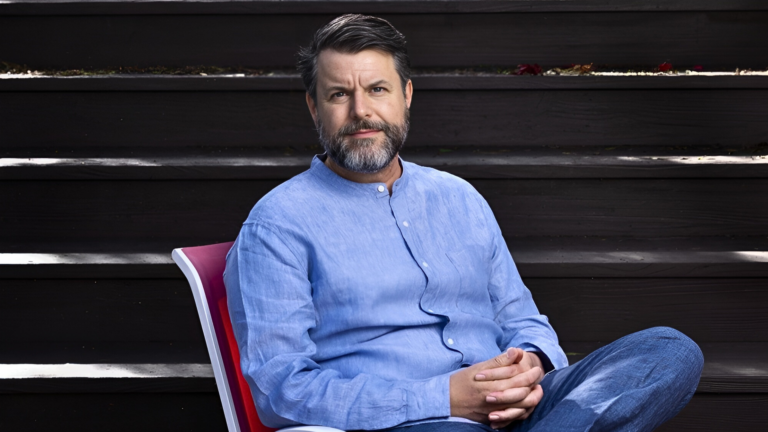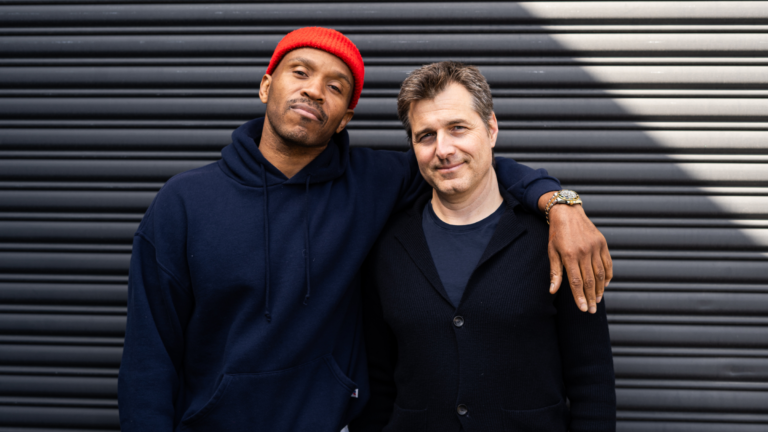This week’s conversation is with Donnie Ecker, a highly respected and accomplished Major League Baseball (MLB) coach who is entering his second season as bench coach and offensive coordinator for the Texas Rangers.
Before his tenure with the Rangers, Donnie was recognized as Baseball America’s 2021 MLB Coach of the Year when he helped lead the San Francisco Giants to a franchise record 107 wins and 241 home runs. However, this is not a conversation about baseball.
Donnie’s technical expertise is in biomechanics and analytics – but it’s his people-first philosophy and ability to help his players work from the inside out that makes his coaching style so powerful and effective. I love how he’s navigated the tension between taking care of himself and taking care of those around him. Best of all, it’s forged in a great life story. Donnie has skills that we can all learn from and try to implement in our own lives – in business, sport, in our communities, or in our families.
So, whether you’re a baseball fan, a coach, a business leader, or someone looking to level up your own performance, I think you’re really going to love this conversation.
“I’m not as interested in leadership as I am interested in wanting to move people. I want to move individuals towards their best and I want to move groups towards their best.”
In This Episode:
Falling in love with coaching
Man, I say I’ve been coaching my whole life. It starts at moments that you look back and you go, “Okay, why in 13 years old flag football, how come I wanted to call plays?” And so I didn’t know that at the time, but I was also playing quarterback. But the dopamine hit wasn’t dropping back and making the throws. The dopamine hit was, “Hey, let’s get together. If we do this and they do this, we’ll do this.” So I was always drawn to it, Mike, and that transformed in my life to going to Australia and trying to fight to keep a career going. But a part of that deal was, “You’re going to coach 12-year olds.” So then I was doing that, and just my whole life in some form or the other, I was really drawn towards coaching.
Creating experiences for others
I used to try to avoid public appearances because I did not want this feeling of you’re better than somebody or all the attention’s on you. I’m extremely comfortable speaking in front of big crowds. I like all that. It shifted for me when I realized that when you have an opportunity to elicit an experience for somebody else that they can’t get other places, you do it. So it’s taking the photo, it’s signing the autograph, it’s speaking to kids. If you can shape and create a fill-in for somebody else that they can’t get somewhere else, you do it.
Leadership = moving people
If your driver and your anchor is to pursue the best interest of the people that you’re responsible for moving, because the leadership word is, which we can get into, language is so important to me. The more words become produced by the masses, I think the more we lose the origin of them. So leadership is, people just know the words to say now because it helps them get the job, and then keeping the job is very difficult. But they know the macro buzzwords. So I’m not as interested in leadership as I’m interested in I want to move people. I want to move individuals towards their best and I want to move groups towards their best.
The invisible handshake
I make sure that I come in extremely non-judgmental. Very important to me. Eliminate bias. There’s that invisible world that we’re all in. If people don’t click on this podcast, at some point, you can’t pay the bills. I know that if we don’t score runs and win games, eventually you’re just not invited back. Contract over, okay? So that’s there. It’s in the corner. I was going back through notes of, gosh, 2015, ’16. This was about two weeks ago, and I had something highlighted from you, and I don’t know if you’re going to remember this. You called it the invisible handshake… if you don’t produce, you’re gone.
Discipline
The way I want to live and the way I want to impact others… I know that there is no magic pill, there is no shortcut. But I do believe that if there was a shortcut, the one I’m choosing is discipline.
Feed yourself to feed others
The way I operate in my day is, I wake up, and the idea is I’m going to be selfish to my binary mode of helping myself grow. So I’m going to put this on my body on an empty stomach. I’m going to read, I’m going to info sponge a little bit, but the second I drive and I show up to work, now it’s about everybody else. So it’s a way that I can do both. And that that’s this idea of institutional leadership, which is no matter what job I’ve had, I have these standards for myself. I have these behaviors that I really want to match. And ultimately, those behaviors are going to drive the systems that we’ve created that eventually create production. But the minute I drive through that parking lot and I go through that door, the ability to institutionally lead is: What is this environment based on the people I’m responsible for asking me to do?
His core principles of coaching
And so those three overarching first principles for me, has it stood the test of time? Are we creating simplicity? I’ll go do the heavy work and do the complex work. Let me go to the deep end and I’ll bring up a system that’s simple that a operates really efficiently in loud, complex environments. And then that last one is that we’re constantly pursuing self-interest of our people, right? That that’s it. So focus on those three things.
Letting others down – and learning from it
I remember being very emotional with this – and, I’m learning that I’m way more emotional. It’s just really about human beings that I’m responsible for. I can go through tough stuff and be pretty binary with it, but man, if I feel like I’ve let somebody down, he told me that and he had a broken wrist. I stopped coaching him whether I like it or not. I really failed in that moment. When he gave me that feedback, one, I said, “Oh gosh, I need to be better at creating internal systems where I’m getting feedback more because I never would’ve thought of that.” I didn’t. I was focused on the guys that were going to drive results and I stopped coaching him. He still needed me, so I let him down. It was a really good lesson to learn. So I don’t ever want anybody in our environment to feel that I’m coaching Corey Seager differently than I’m coaching the rookie.
The darkside and coaching failure
The dark side is I’m in bed and I know a guy’s struggling. I’m feeling it. I’m struggling. I can’t move past that until he does. So the locking of arms with a human being, back to the design of biological design, the brain as… I mean, this better than anybody. The brain’s not telling us like, “Oh man, let’s go be amazing and let’s go conquer.” It’s setting up parameters and making sure you’re safe and all those fear detectors. Then the design of our sport is also saying, “If you are the best, you’re going to fail 70%, the best.” Most guys are failing like 80 to 85%. That’s average. So picture design of the brain, these are my humans, they’re trying to survive, and we put them in a sport where they’re going to fail almost 80%. 70% if you’re elite. In what other field can you have a 30% success rate and be considered elite and where they want to keep you?
Love is the culture
Even the word culture, Mike. It’s like, man, I’m almost so tired of hearing it. Just let me fill it. Let me talk to your people. Everybody knows it’s really important to have a culture, but even offensively, I just really bring a lot of awareness to these words. Once they get really mass popularity, they start to take on all these other things. So let’s go back to the origin, core values. I told you how we move and how we game plan and self-interest. Well, what are core values? We go back to the Latin root and corazon and it’s heart. So our failure in our sport, our system is set. We’re going to move people’s hearts. This goes back to love. It’s the one thing that’s at the bottom.
His advice for leaders
I would say don’t worry about the word “leading.” Move individuals through their heart. Move them towards best interests of themselves and the company, and then move groups. Can you just… move people? And it resonates with me, because it really creates a freeing aspect of, “Man, I want to help that person,” and then, that person’s in charge of this department. “I want to help that department.” And you’re just helping them pursue their best in the way that’s true to them. And it’s written on our walls in our room in the offensive room, and it is nine on one. There’s nine players. So, our group is nine guys every night against one, a pitcher. And underneath it though, it says, “Be You, within us.” So I think it’s so congruent to business as well, which is do you want to follow the military model, or do you want to be a little bit more high performance, Navy SEALs? It’s different. So you can get everybody to stand in a straight line and wear the same shirt, but your ceiling is you can get efficiency, your ceiling’s lower. So as leaders, as people that want move people, how do we maximize the uniqueness of the individual within the structure of us?


